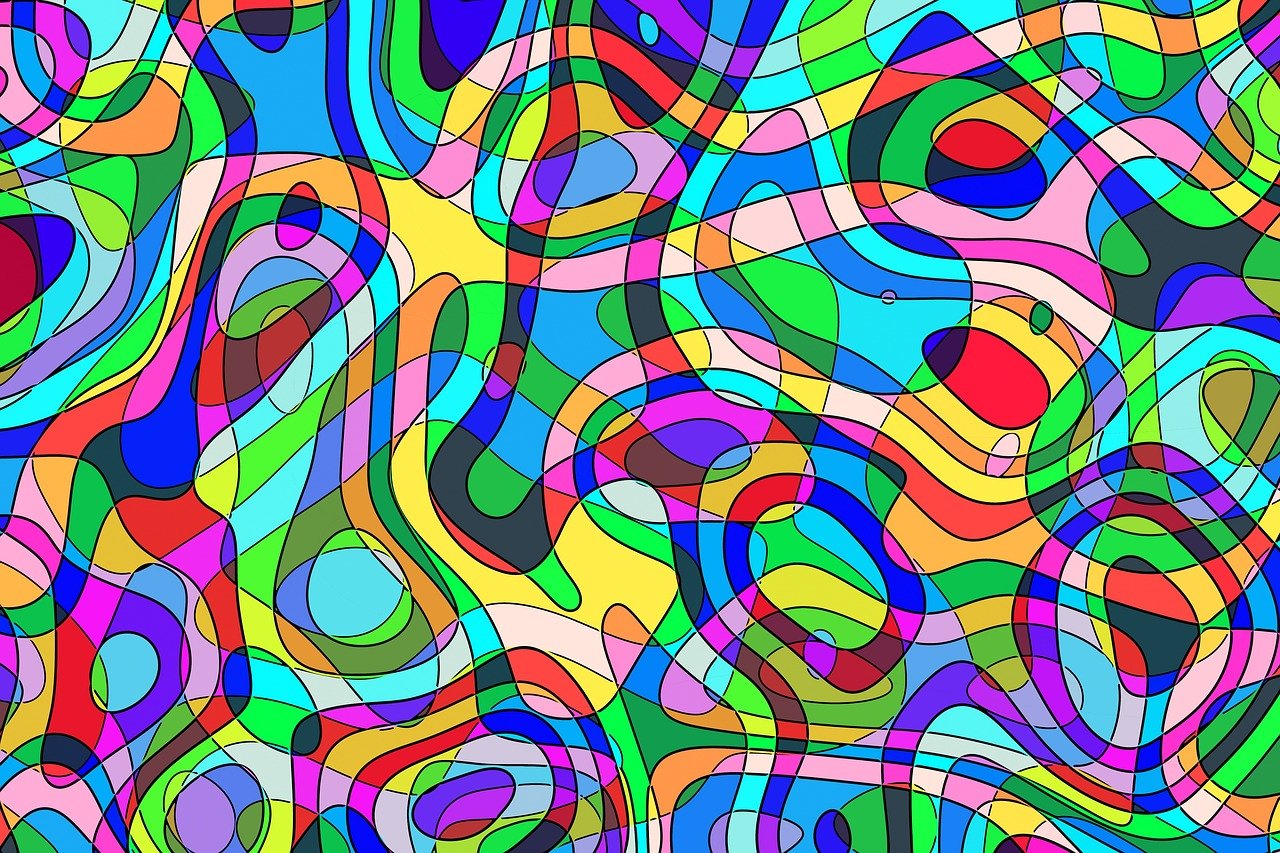Beyond Sight: Navigating Mysteries of Remote Viewing

Hey there, amazing readers! 🖐️ Just a quick note: yes, we know there are a lot of ads here. Trust us, we get it—it’s not the prettiest look, but they help us keep this blog alive and kicking. Those pesky little ads cover the costs of all the behind-the-scenes magic, from hosting and tech stuff to creating content we hope you’ll love.
We’re committed to delivering quality posts, and your support (even just sticking around despite the ads) means everything to us. So, bear with us, and thanks for helping us keep the good vibes rolling. Now, on to the fun stuff! 😉
TRANSLATE BUTTON AT THE END OF THE ARTICLE
Overview
Remote viewing is a fascinating phenomenon that has captured the interest of many researchers, scientists, and enthusiasts alike.
It is a method of gathering information about a target location or object that is beyond the reach of our normal senses.
In this article, we will delve into the mysteries of remote viewing, exploring its origins, the science behind it, techniques to develop remote viewing skills, debunking misconceptions, real-life applications, limitations, future advancements, ethical considerations, the connection between remote viewing and intuition, and how it differs from psychic abilities.
We will also take a look at its portrayal in popular culture and hear testimonials and success stories from remote viewers.
Understanding Remote Viewing and Its Origins
Remote viewing refers to the ability to perceive information about a target location, event, or object through extrasensory perception (ESP) or psychic means.
It is believed to be a skill that allows individuals to access information that is beyond the reach of their physical senses.
The origins of remote viewing trace back to the 1970s when the U.S. government initiated a research program known as Project Stargate.
This program aimed to investigate the potential application of remote viewing in intelligence gathering and military operations.
The Science Behind Remote Viewing Explained
The scientific explanation behind remote viewing remains a subject of debate.
Some theories propose that it involves the utilization of the unconscious mind, while others suggest a connection to quantum mechanics.
One hypothesis is that remote viewing operates on the principle of non-local consciousness, where the viewer’s consciousness transcends the limitations of space and time.
This allows them to access information from a remote location or time period.
While the exact mechanisms are not yet fully understood, ongoing research continues to shed light on the scientific underpinnings of this phenomenon.
Techniques to Develop Remote Viewing Skills
Developing remote viewing skills requires practice, patience, and an open mind.
There are various techniques that individuals can employ to enhance their remote viewing abilities.
One popular technique is known as the Coordinate Remote Viewing (CRV) method, which involves using a set of coordinates to focus the viewer’s attention on a specific target.
Another technique is the Associative Remote Viewing (ARV) method, where the viewer uses sensory cues or photographs to establish a connection with the target.
Regular meditation, mindfulness practices, and journaling can also aid in refining remote viewing skills.
Debunking Misconceptions about Remote Viewing
Remote viewing often faces skepticism and misconceptions.
One common misconception is that remote viewing is the same as fortune-telling or psychic predictions.
However, remote viewing focuses on gathering information rather than predicting future events.
It is also important to note that remote viewing does not provide 100% accuracy and can be subject to errors and interpretation biases.
Another misconception is that remote viewing is solely a paranormal phenomenon.
In reality, ongoing scientific research aims to understand remote viewing within the framework of human consciousness and perception.
Real-Life Applications of Remote Viewing
Remote viewing has found practical applications in a range of fields.
In intelligence and military operations, remote viewing has been used to gather information on hidden targets, such as enemy installations or hostages.
Archaeologists have also employed remote viewing to locate and explore ancient sites that are difficult to access physically.
Psychologists and therapists have explored the use of remote viewing as a tool for healing and personal growth.
Additionally, some individuals have used remote viewing for finding missing persons or solving crimes.
Exploring the Limitations of Remote Viewing
While remote viewing can yield valuable information, it is not without limitations.
One significant limitation is the potential for information contamination.
Remote viewers may inadvertently receive information from external sources or their own biases, leading to inaccuracies.
Another limitation is the inability to control or predict the specific details that will be obtained during a remote viewing session.
Additionally, remote viewing is not always reliable, and results can vary depending on the viewer’s expertise, mindset, and the specific target being observed.
The Future of Remote Viewing: Advancements and Challenges
As technology advances, remote viewing may benefit from new tools and techniques.
For instance, advancements in brain imaging and neurofeedback could enable researchers to gain a better understanding of the neural processes underlying remote viewing.
Additionally, the development of virtual reality and augmented reality technologies may provide more immersive environments for remote viewing experiments.
However, challenges remain, such as the subjective nature of remote viewing experiences and the need for rigorous scientific methodologies to validate the phenomenon.
Ethical Considerations in Remote Viewing
Ethical considerations play a crucial role in the practice of remote viewing.
Remote viewers should always prioritize the consent and privacy of the targets they are observing.
They must adhere to strict ethical guidelines to ensure that their actions do not cause harm or violate confidentiality.
Furthermore, the responsible use of remote viewing in sensitive areas, such as intelligence gathering or criminal investigations, requires a balanced approach that respects individual rights and preserves the integrity of the process.
The Connection Between Remote Viewing and Intuition
Remote viewing and intuition are closely related phenomena.
Both involve accessing information beyond the scope of our physical senses.
Remote viewing, however, is a more structured and trainable process, relying on specific techniques and protocols.
Intuition, on the other hand, is a more intuitive and spontaneous form of perception.
While the exact relationship between remote viewing and intuition is yet to be fully understood, many remote viewers report that cultivating their intuition enhances their remote viewing abilities.
Remote Viewing vs. Psychic Abilities: What’s the Difference?
Remote viewing and psychic abilities are often conflated, but there are distinct differences between the two.
Remote viewing focuses on gathering sensory information about a specific target, while psychic abilities encompass a broader range of phenomena, such as clairvoyance, telepathy, and precognition.
Remote viewing is often considered a more controlled and systematic approach, relying on specific protocols, whereas psychic abilities are generally perceived as more intuitive and spontaneous.
Remote Viewing in Pop Culture: Movies, TV, and Books
Remote viewing has captured the imagination of many and has made appearances in popular culture.
Movies like "The Men Who Stare at Goats" and "Suspect Zero" explore remote viewing within the context of intelligence agencies and crime-solving.
TV shows like "Stranger Things" and "Fringe" feature characters with remote viewing abilities.
Numerous books also delve into the topic, providing both fictional and non-fictional accounts of remote viewing experiences.
These portrayals in popular culture have helped raise awareness and spark interest in remote viewing.
Testimonials and Success Stories from Remote Viewers
Many individuals have shared their testimonials and success stories regarding remote viewing.
These accounts often highlight the accuracy and detailed information obtained through remote viewing sessions.
Remote viewers have reported successfully describing distant locations, hidden objects, and historical events that were unknown to them prior to the session.
While skeptics may question the validity of these claims, these testimonials provide insights into the potential of remote viewing as a valuable tool for gathering information that goes beyond our normal senses.
Conclusion
Remote viewing remains a captivating subject that pushes the boundaries of our understanding of consciousness and perception.
While the science behind remote viewing is still evolving, ongoing research and practical applications continue to shed light on its potential.
By understanding its origins, embracing scientific methodologies, and exploring the connection between remote viewing and intuition, we can navigate the mysteries of remote viewing and unlock its potential for personal growth, exploration, and problem-solving.

The Enlightenment Journey is a remarkable collection of writings authored by a distinguished group of experts in the fields of spirituality, new age, and esoteric knowledge.
This anthology features a diverse assembly of well-experienced authors who bring their profound insights and credible perspectives to the forefront.
Each contributor possesses a wealth of knowledge and wisdom, making them authorities in their respective domains.
Together, they offer readers a transformative journey into the realms of spiritual growth, self-discovery, and esoteric enlightenment.
The Enlightenment Journey is a testament to the collective expertise of these luminaries, providing readers with a rich tapestry of ideas and information to illuminate their spiritual path.
Our Diverse Expertise 🌟
While our primary focus is on spirituality and esotericism, we are equally passionate about exploring a wide range of other topics and niches 🌍📚. Our experienced team is dedicated to delivering high-quality, informative content across various subjects ✨.
To ensure we provide the most accurate and valuable insights, we collaborate with trusted experts in their respective domains 🧑🏫👩🏫. This allows us to offer well-rounded perspectives and knowledge to our readers.
Our blog originally focused on spirituality and metaphysics, but we’ve since expanded to cover a wide range of niches. Don’t worry—we continue to publish a lot of articles on spirituality! Frequently visit our blog to explore our diverse content and stay tuned for more insightful reads.







